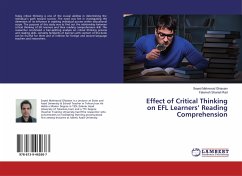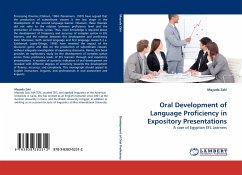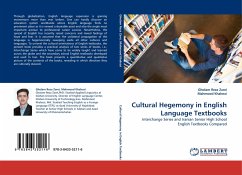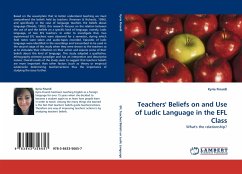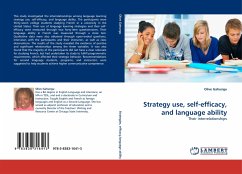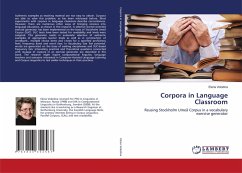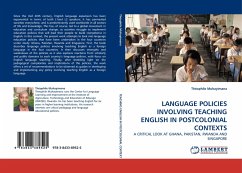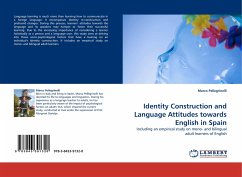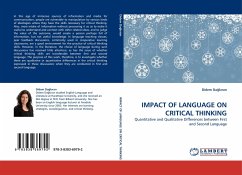
IMPACT OF LANGUAGE ON CRITICAL THINKING
Quantitative and Qualitative Differences between First and Second Language
Versandkostenfrei!
Versandfertig in 6-10 Tagen
32,99 €
inkl. MwSt.

PAYBACK Punkte
16 °P sammeln!
In this age of immense sources of information and media for communication, people are vulnerable to manipulation by various kinds of ideologies unless they have the skills necessary for critical thinking. Also, mere intake of information without processing it so as to make it useful to understand and connect with other related ideas, and to judge the value of the outcome, would create a person perhaps full of information, but not useful knowledge. In language teaching classes, peer feedback discussions, commonly used in cooperative learning classrooms, are a good environment for the practice o...
In this age of immense sources of information and media for communication, people are vulnerable to manipulation by various kinds of ideologies unless they have the skills necessary for critical thinking. Also, mere intake of information without processing it so as to make it useful to understand and connect with other related ideas, and to judge the value of the outcome, would create a person perhaps full of information, but not useful knowledge. In language teaching classes, peer feedback discussions, commonly used in cooperative learning classrooms, are a good environment for the practice of critical thinking skills. However, in the literature, the choice of language during such discussions has received little attention, as has the issue of whether critical thinking skills are transferable between first and second language. The purpose of this work, therefore, is to investigate whether there are qualitative or quantitative differences in the critical thinking expressed in these discussions when they are conducted in first and second language.





